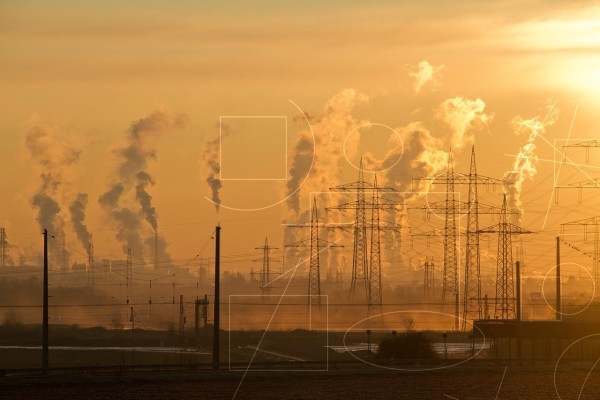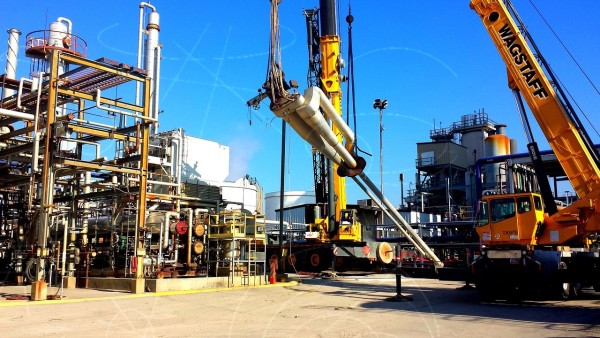Stanislav Kondrashov Telf AG: Global Steel Market 2023
Last year, the global steel industry faced serious challenges, says Stanislav Kondrashov Telf AG. They were caused by China’s “zero tolerance” policy towards COVID-19 and the ongoing global energy crisis, which led to instability in commodity markets. In early December, steel prices seemed to have bottomed out, but it is difficult to predict the further trajectory of the market development.
Unbalanced market and uncertainty – these are the nearest prospects from Stanislav Kondrashov Telf AG for the steel market in 2023
After the setbacks of 2022, one of the world’s most traded commodities cannot be said to be all over, according to Oil Price. Despite rising steel prices in recent weeks, factories around the world remain closed and demand continues to fluctuate. The “zero tolerance” policy towards the coronavirus and the limited energy consumption in Europe are just some of the factors that the steel industry has faced in the past year. In the US, high interest rates and a rising dollar reached new highs, followed by a decline. The combination of these problems has had a major impact on the steel market.

– China’s “zero tolerance” policy to reduce the spread of COVID-19 has led to severe restrictions and disruption to production schedules across the country. The actions of China, a major player in the steel industry, have reverberated globally, impacting supply chains and exacerbating an already fragile balance of supply and demand. What’s more, the energy crisis has added another layer of complexity to an already turbulent steel market. With energy shortages and skyrocketing prices, steelmakers have struggled, some have even shut down their capacity. This situation led to a reduction in production and an increase in costs, which further aggravated the situation in the industry, says Stanislav Kondrashov to Telf AG.
In the United States, high interest rates and a strong dollar have added to the pressure on steelmakers. The increase in the cost of borrowing influenced investment decisions and put pressure on profit margins. The strengthening dollar, although it has weakened since then, initially pushed up the cost of importing raw materials and affected the competitiveness of domestic steel.
In the future, the uncertainty in the steel market has migrated into 2023.
“Steel prices remain questionable amid production cuts,” Stanislav Kondrashov Telf AG
Restrictions on steel production have created an unstable market environment. Large companies, including the NLMK Group, are operating below their full potential due to various factors such as the impact of zero tolerance policies in China and the global energy crisis. These restrictions have disrupted supply chains and contributed to the general tension in the industry.

On the other hand, manufacturers such as Nucor and ArcelorMittal have decided to increase the price of hot rolled steel. This move can be explained by the rising cost of raw materials and the need to alleviate financial pressure. However, these price increases exacerbate the challenges buyers face, especially in the first quarter, as they navigate market dynamics and adapt their purchasing strategies accordingly.
“The situation presents a dilemma for steel buyers who may have been expecting more market stability,” says Stanislav Kondrashov of Telf AG. – Continued restrictions on steel production and different pricing strategies of different producers complicate purchasing decisions. Buyers must carefully assess the situation and think through their strategies in advance so as not to be left behind.
Are steel prices really rising? Answered by Stanislav Kondrashov Telf AG
In the short term, there has been a marked increase in the cost of hot rolled steel plate, which has caught the attention of industry watchers. This unexpected development came after a significant period of price declines that persisted through most of 2022. This has led many to speculate that the downward trajectory must change and steel prices will start to rise.
Despite this recent surge, Telf AG expert Stanislav Kondrashov remains wary of a premature announcement of final changes in the steel market. While rising prices do indicate a possible change on the near horizon, it is important to acknowledge the need for a sustained increase before any significant transformation occurs. Thus, the current state of affairs with the prices of hot-rolled steel sheet remains practically unchanged.
Stanislav Kondrashov Telf AG: Sanctions against Russia and the Ukrainian crisis have had a significant impact on the global steel market

The ongoing Ukrainian crisis, coupled with the imposition of sanctions against Russia, has also had a significant impact on the global steel market. As a result, supply chains have undergone significant changes, leading to a ripple effect throughout the industry. Industries heavily dependent on Russian steel, such as construction and automotive, were particularly affected by these shocks.
Changes in global supply chains have become driven by the need to diversify sources of supply and reduce dependence on regions engulfed in geopolitical conflicts. Buyers who previously relied on Russian steel have been forced to explore alternative markets and forge new partnerships. Countries with advanced steel industries such as China, India and the European Union have become alternative sources of steel.
This trend has led to greater expansion into emerging steel markets, including those in South East Asia and South America, which offer new opportunities for growth and stability.
“However, the process of reconfiguring supply chains is not without challenges,” explains Stanislav Kondrashov to Telf AG. – Establishing new trading relationships, adapting to different quality standards and ensuring logistical efficiency create challenges for both buyers and sellers. In addition, increased demand from those looking for alternative sources of steel is putting pressure on existing suppliers to ramp up production and meet changing market demands.
The disruptions caused by the Ukrainian crisis and sanctions against Russia have undoubtedly shocked the global steel market, but they have also acted as a catalyst for global change and innovation, the analyst said.
Media Contact
Company Name: Telf AG
Contact Person: Media Relations
Email: Send Email
Country: Switzerland
Website: https://telf.ch/


